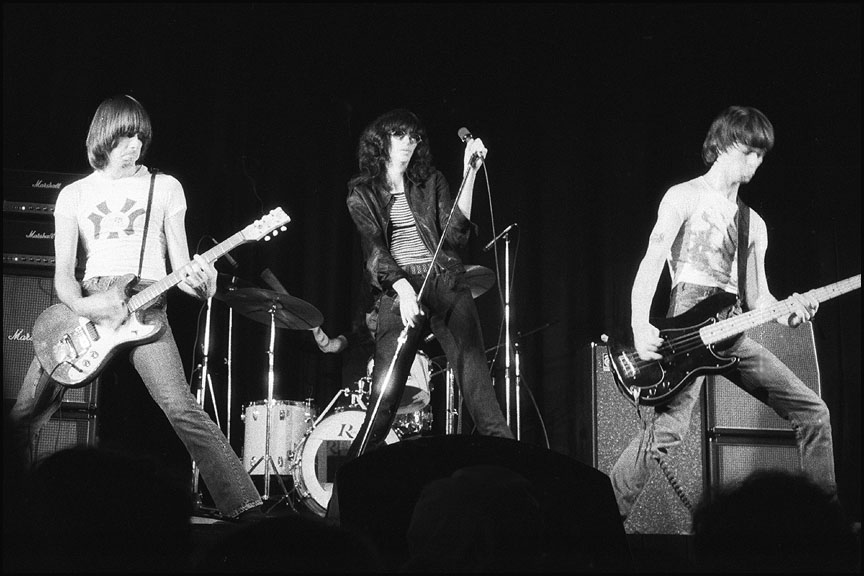Location: Kimball Theatre
Price: $8.50 | $7.00 with student ID
When someone goes to see one of their favorite bands or musicians perform a live concert, not much thought is given to the people behind the scenes who shape the artists’ images and reputations. Nevertheless, these mediators between the art and the audience can be incredibly influential, as showcased in the documentary “Danny Says,” a chronicle of the career of Danny Fields, a notable journalist, publicist and manager throughout the rock and roll era.
The film follows Fields from his childhood in a traditional, Jewish family in the 1940s and ‘50s all the way to his globetrotting adventures with the Ramones as their band manager in the 1970s. Fields took on several roles during his unconventional career, originally working as a magazine writer and editor covering the music scene in New York’s Greenwich Village. His ear for groundbreaking sound earned him a job as a publicist for Elektra Records, and he went on to work with such bands as The Doors, MC5 and The Stooges. After leaving Elektra, Fields discovered the Ramones in 1975, whose 1980 hit song “Danny Says,” which is about Fields and his influence on the band, plays at the end of the movie.
“Danny Says” frames Fields as one of the primary orchestrators of the rebel movements in music during this period of cultural unrest in America. In an era defined by sexual revolution, hippie culture and anti-Vietnam demonstrations, Fields participated in this counterculture while also shaping the music his contemporaries listened to. As an open homosexual, Fields was on the fringes of society from the very beginning, and his taste in music reflected his desire to resist cultural normality. While Fields never once picked up an instrument, he nonetheless brought innovative and controversial artists into the spotlight, helping to popularize rock and roll and its defiant, ear-shattering sound. “Art needs a translator,” one of the artists Fields worked with says, and the movie seeks to cast Fields himself in this role as the man who bridged the gap between the consumer and the art.
Fields’s story is not just one of unbridled talent finding immediate success, however. He openly discusses his conflicts with various executives and musicians throughout the film; his terrible relationship with Jim Morrison, lead singer of the Doors, is a particularly memorable example. The film also highlights Fields’s feelings of inadequacy. He often refers to the artists he worked with as superhuman figures, these people taking on a mystical power in his eyes. As a man motivated to find connection in a society which labeled him as different or even dangerous, Fields did not feel worthy of the company he kept during his career, looking back at his accomplishments and experiences with a certain melancholy and regret. The film thankfully does not attempt to resolve Fields’s issues for him, humanizing him rather than making Fields’s own mistake of idealization.
“Danny Says” is told through a series of interviews, recordings, photographs and video clips. Fields and others recount their experiences as the audience also gets to watch them happen. Mixed into the film as well are animated drawings of incidents which a camera did not record, giving these anecdotes an imaginary, unreal quality. Fields and the artists he encountered rampantly consumed drugs such as marijuana, cocaine and acid, and these animated sequences capture the other-worldliness of being high, bringing the viewer into this hallucinatory dimension. It’s a unique technique for a documentary of this nature, and one that serves its purpose effectively.
The film’s score is, of course, a fantastic collection of the music which inspired Fields as well as songs which he himself helped make famous. The movie is almost as much about the evolution of the rock genre as it is about Fields’s influence on that evolution, revealing the outlooks, attitudes and off-stage personas of influential musicians such as Morrison, Iggy Pop and Nico. These artists shared Fields’s attraction to the revolutionary, resisting and redefining the status quo with their chaotic rhythms. The film does not idealize this rebellious cast of characters either, in particular casting Pop and the Stooges as a poignant reminder of the destructive tendencies of heroin, a drug that Fields himself disdained.
“Danny Says” ultimately succeeds in delivering an entertaining biography of one of music’s lesser-known but certainly important figures, displaying Field’s revolutionary accomplishments as well as his human limitations. For anyone interested in the evolution of American music, and rock and roll in particular, this documentary is a must-see.


Danny was the best!
Now learn all about the Ramones in the book ON THE ROAD WITH THE RAMONES.